Match fishing is competitive angling, a branch of the sport where anglers compete against each other to catch the biggest weight of fish within a set time.
If you're new to fishing or looking to take your angling skills to the next level, match fishing can be a thrilling and rewarding experience and our beginners guide to match fishing will get you started on the right path. A typical match lasts between 4 and 6 hours, but the duration can vary depending on the club or fishery.
WANT TO START YOUR OWN CLUB? OUR GUIDE TO THE BEST VENUES TO BOOK YOUR NEXT CLUB MATCH WILL HELP YOU ORGANISE YOUR FIXTURES.
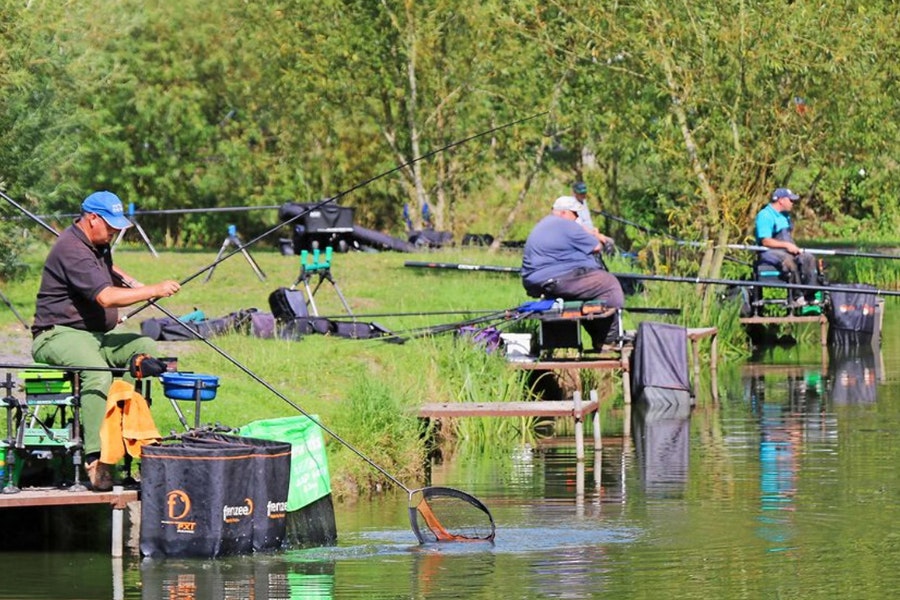
The fishing pegs that anglers fish from are usually determined by a random draw, and the match is often divided into sections to ensure fair competition. The goal is to achieve the biggest weight in your section and ultimately win the match. This system helps to level the playing field, as fisheries can have an uneven distribution of fish due to factors like lake features and weather conditions.
Most matches require a stake to enter, which contributes to a prize pool distributed among the top-ranking anglers. Typically, 1st, 2nd, and 3rd places, as well as section winners, receive prizes.
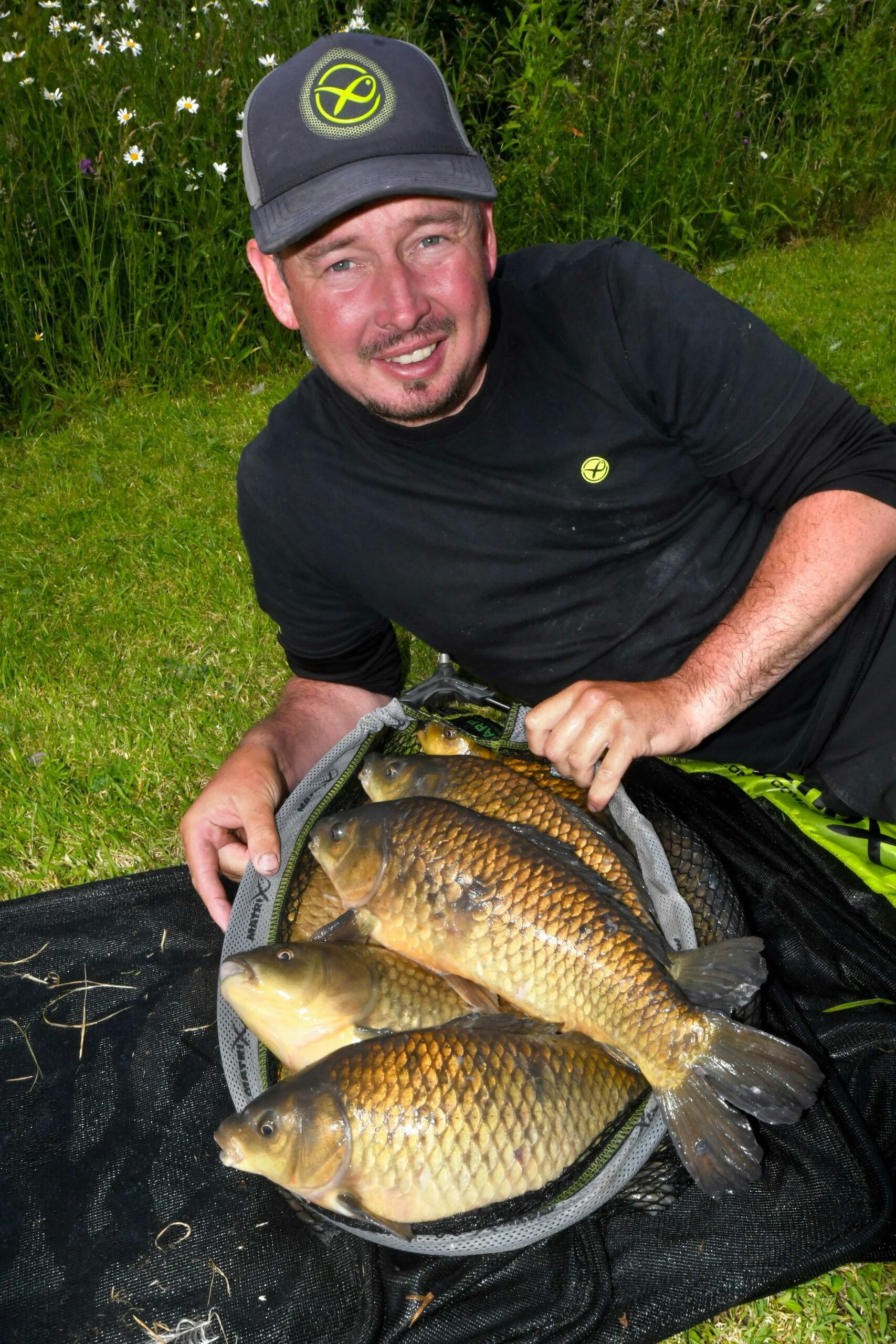
There are different levels of competitive match fishing in the UK: club level, open matches, festivals, and national competitions. Club matches are organized by groups of anglers and offer a more relaxed atmosphere. Open matches are open to anyone and are held at various fisheries throughout the UK. Fishing festivals are multi-day events with multiple matches, often held at popular venues. Notable ones include Whiteacres, Lindholme Lakes, and Westwood Lakes.
Prestigious national competitions, like Fish 'O' Mania, offer larger prizes and often require qualification to participate. Fish 'O' Mania, established over 31 years ago, is the most prestigious commercial match fishing competition in the UK. It is the only televised match and features 20 qualifying events held throughout the year at various fisheries across the country. The winner of each qualifying match advances to the final, where they compete for a £50,000 prize.

Other notable competitions include Maver Match This, Golden Reel, Golden Rod, and Riverfest. These competitions vary in format and prize money but share a common goal of attracting top anglers from across the UK.
Competing in prestigious matches is highly competitive and demanding. Anglers face intense pressure to perform at their best and often need to adapt to challenging conditions. The rewards, however, can be substantial, both in terms of prize money and recognition within the angling community
Familiarising yourself with the specific rules and regulations of the match venue and your fishing club is crucial for a fair and enjoyable experience. Understanding the rules, including weight limits, prohibited methods, and fair play guidelines, will help you avoid penalties and ensure a level playing field.
To approach a match effectively, you'll need a wide range of equipment to accommodate different tactics. Be prepared for changing conditions by considering weather forecasts and adjusting your approach accordingly.
Regular practice is essential for improving your skills and building confidence. The more you fish, the better you'll become. By combining knowledge of rules, venue expertise, equipment selection, and practice, you'll be well-prepared to succeed in match fishing
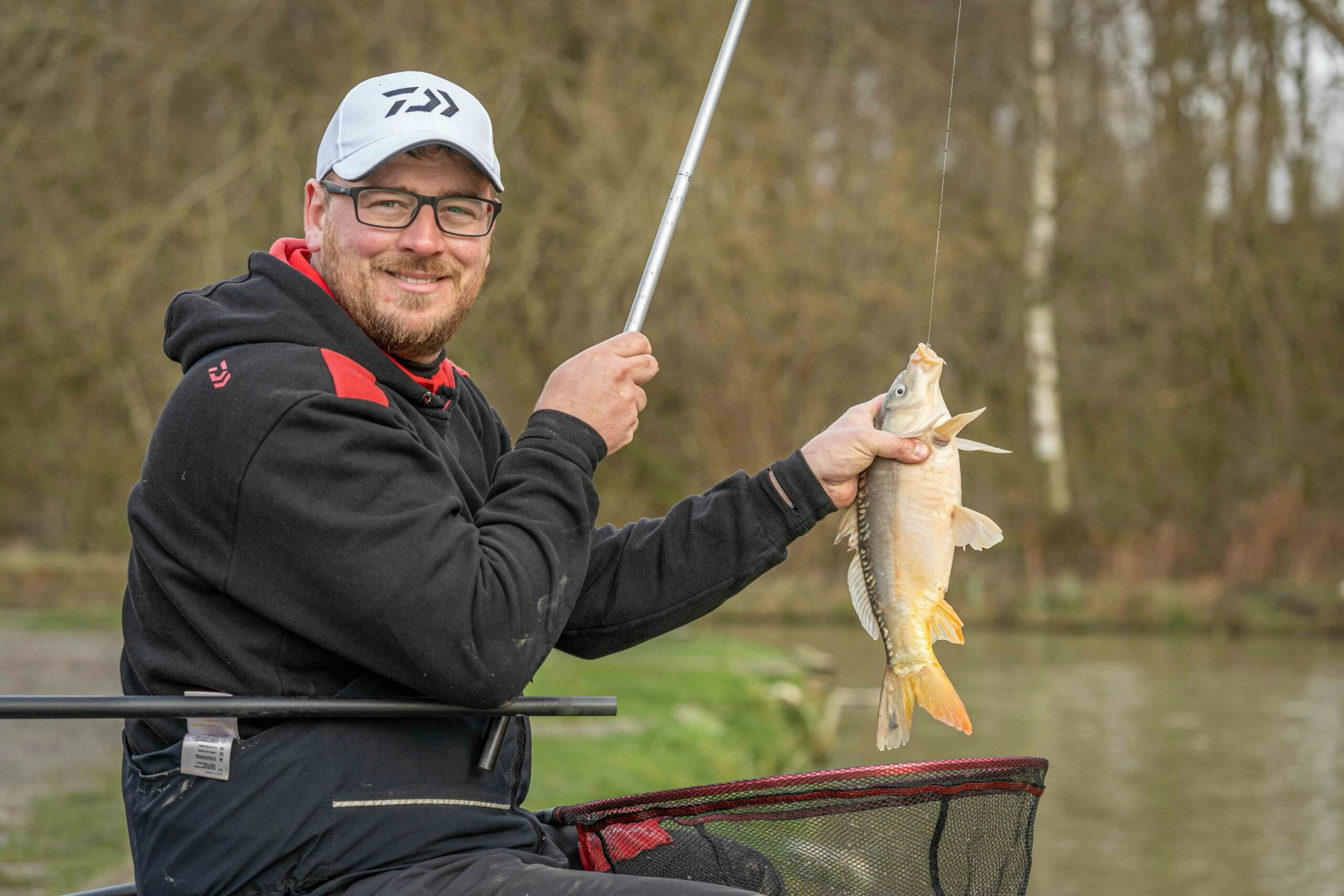
What to expect
To get started in match fishing, consider joining a fishing club to learn from experienced anglers and participate in local matches. Taking lessons from a qualified angling instructor can also provide valuable tips and advice. Remember, practice is key to improving your skills.
When preparing for a match, pay close attention to your tackle. Choose rods, reels, lines, and baits that are suitable for the specific fishery and conditions. Avoid common mistakes like overfeeding, using the wrong tackle or technique, or losing focus during the match. By following these tips and practicing regularly, you'll be well on your way to becoming a successful match angler.
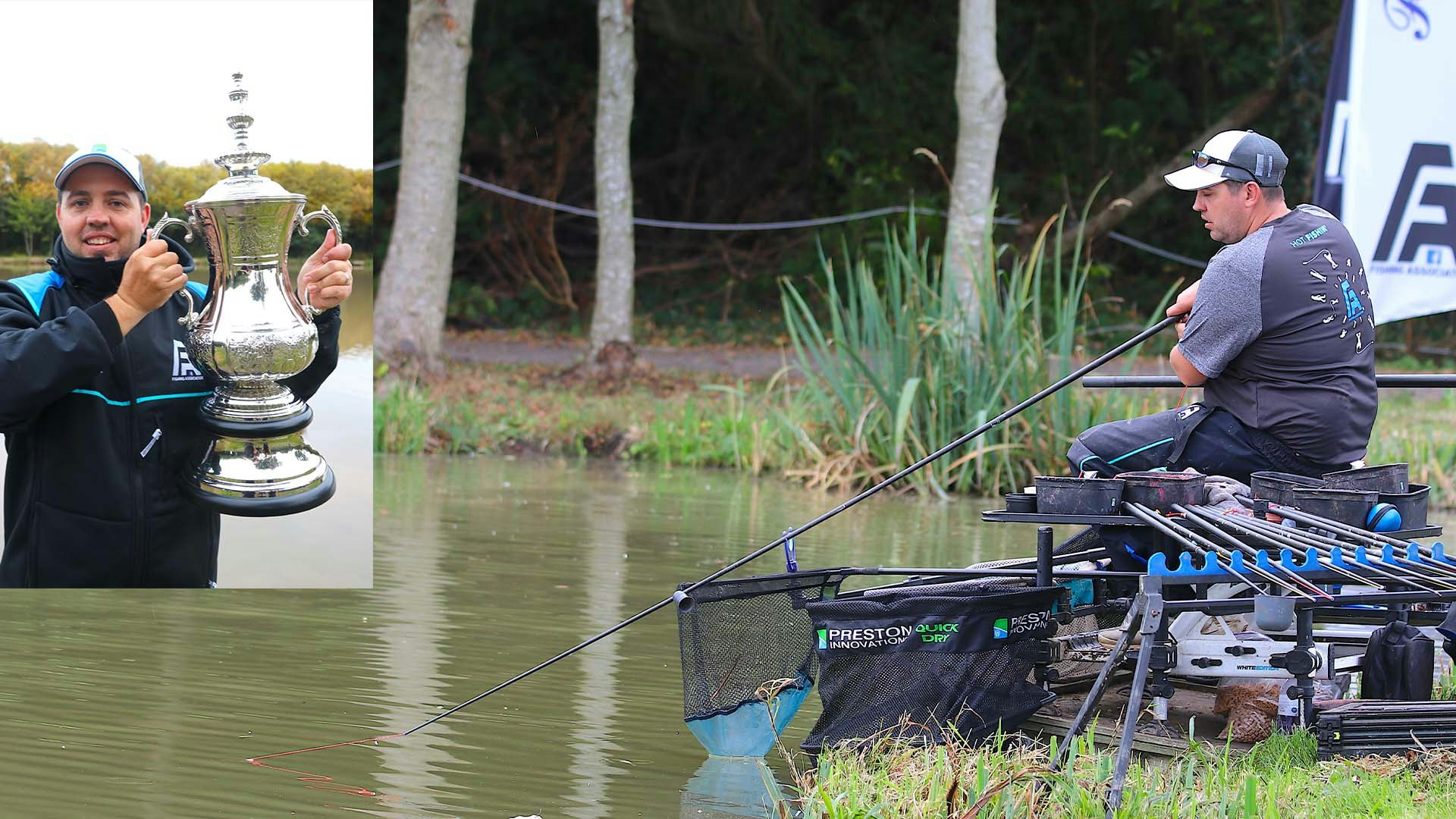
What you need to go match fishing
Before you can start match fishing in the UK, you'll need to obtain an Environment Agency rod license. These licenses are available for daily, weekly, or yearly periods and can be purchased online.
If you're part of a fishing club, you'll have access to a schedule of club fixtures. For open matches, you can usually turn up on the day, but it's advisable to book a place in advance, especially for popular fisheries. To participate in prestigious tournaments like Fish 'O' Mania, you'll need to obtain tickets from the Angling Trust and meet the eligibility requirements.
To get started in match fishing, it's essential to have the right equipment. The following guide provides a basic list of items to get you started or help you upgrade your gear.
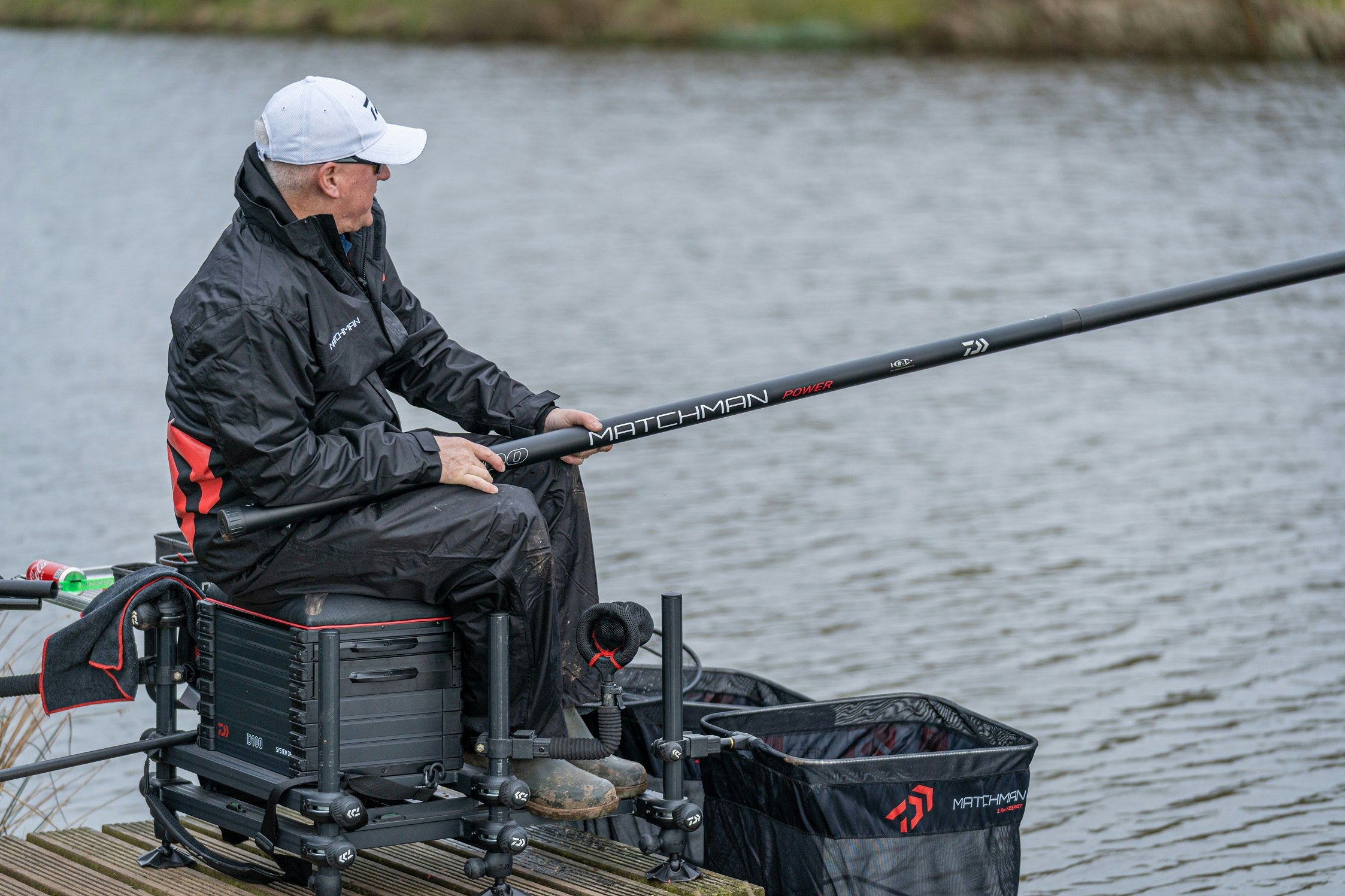
Seatboxes
A seatbox is an essential piece of equipment for any match angler. It provides a comfortable and organised platform for your fishing gear and accessories. In addition to storage space, seatboxes can be customised with various accessories to enhance your comfort and efficiency.
When choosing a seatbox, consider your personal preferences and fishing style. Modular seatboxes offer flexibility, while all-in-one systems provide a complete solution. By carefully organising your tackle and selecting the right accessories, you can create a highly efficient and enjoyable fishing setup.
nullnullnull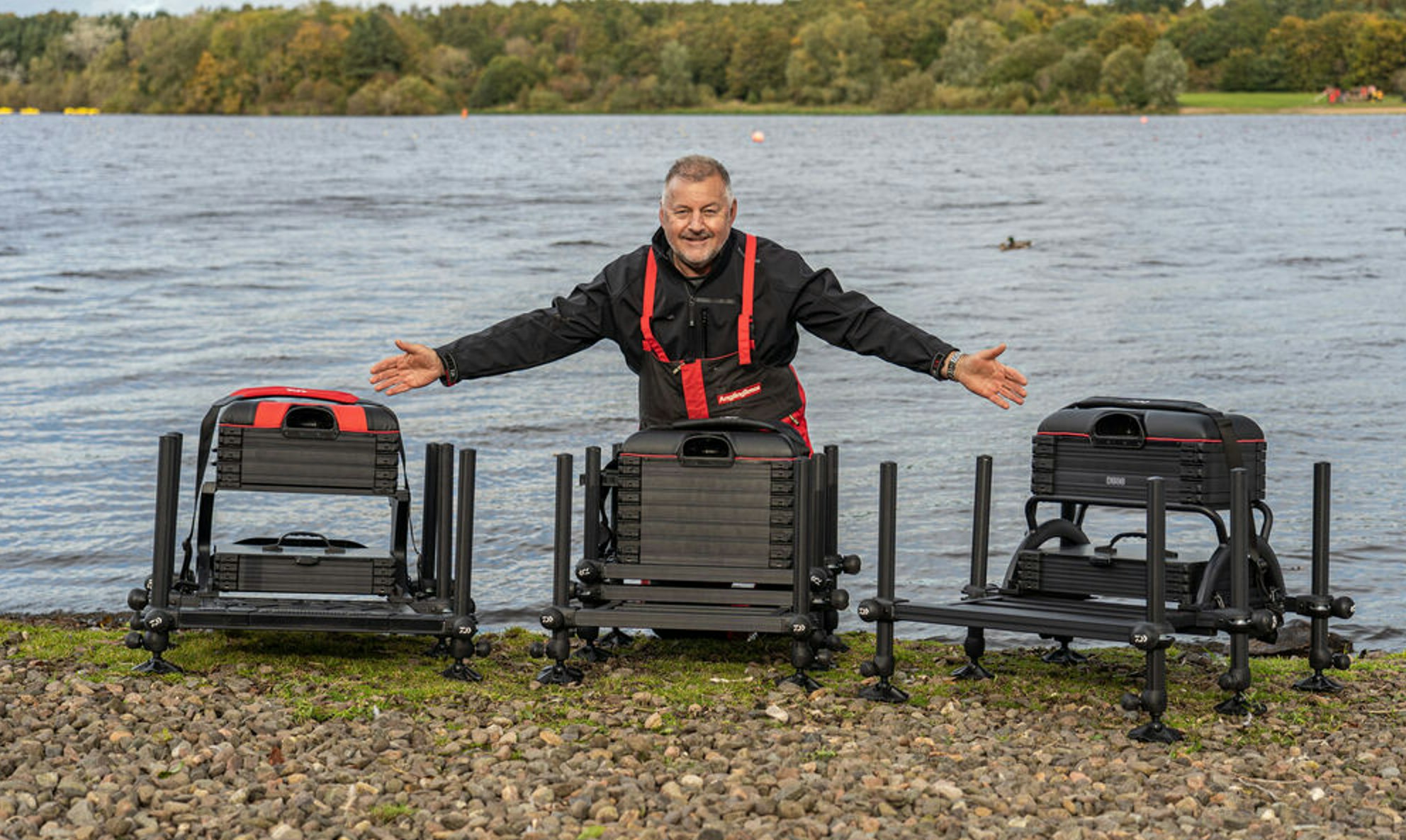
Seatbox accessories
Essential accessories include sidetrays for holding bait and tackle, keepnets for retaining fish, pole supports for stability, and rod rests for comfort. Other valuable options include bait trays, tackle organisers, and even umbrellas for protection from the elements.
nullnullnullIF A SEATBOX ISN'T WHAT YOU PREFER THEN OUR GUIDE TO THE BEST FISHING CHAIRS WILL BE OF INTEREST
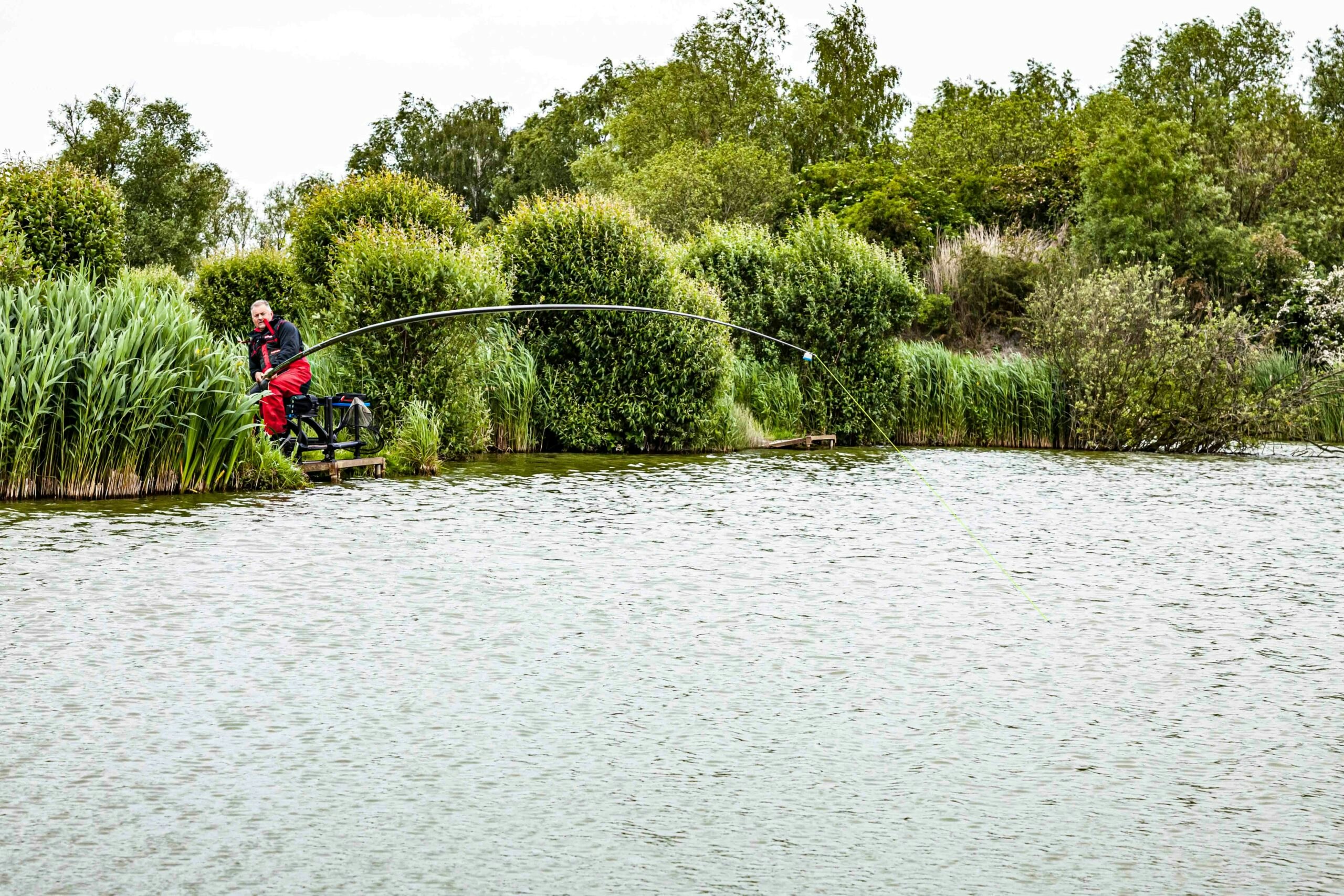
Poles
Match fishing is a highly competitive sport that requires anglers to be adaptable to changing conditions. The random draw and unpredictable nature of each match mean that a favoured tactic may not always be the best approach. Therefore, having a diverse range of tackle is essential for success.
The pole is a popular choice among match anglers due to its accuracy and precision. A 16-meter pole offers maximum fishing length, but some fisheries and clubs may have specific pole length rules. It's crucial to select a pole that suits your physical abilities and fishing style. Most pole packages include spare top kits, allowing for quick and efficient changes to your setup.
nullnullnullCHOOSING AND FITTING THE CORRECT POLE ELASTICS CAN BE INTIMIDATING, OUR GUIDE WILL HELP YOU GET IT RIGHT
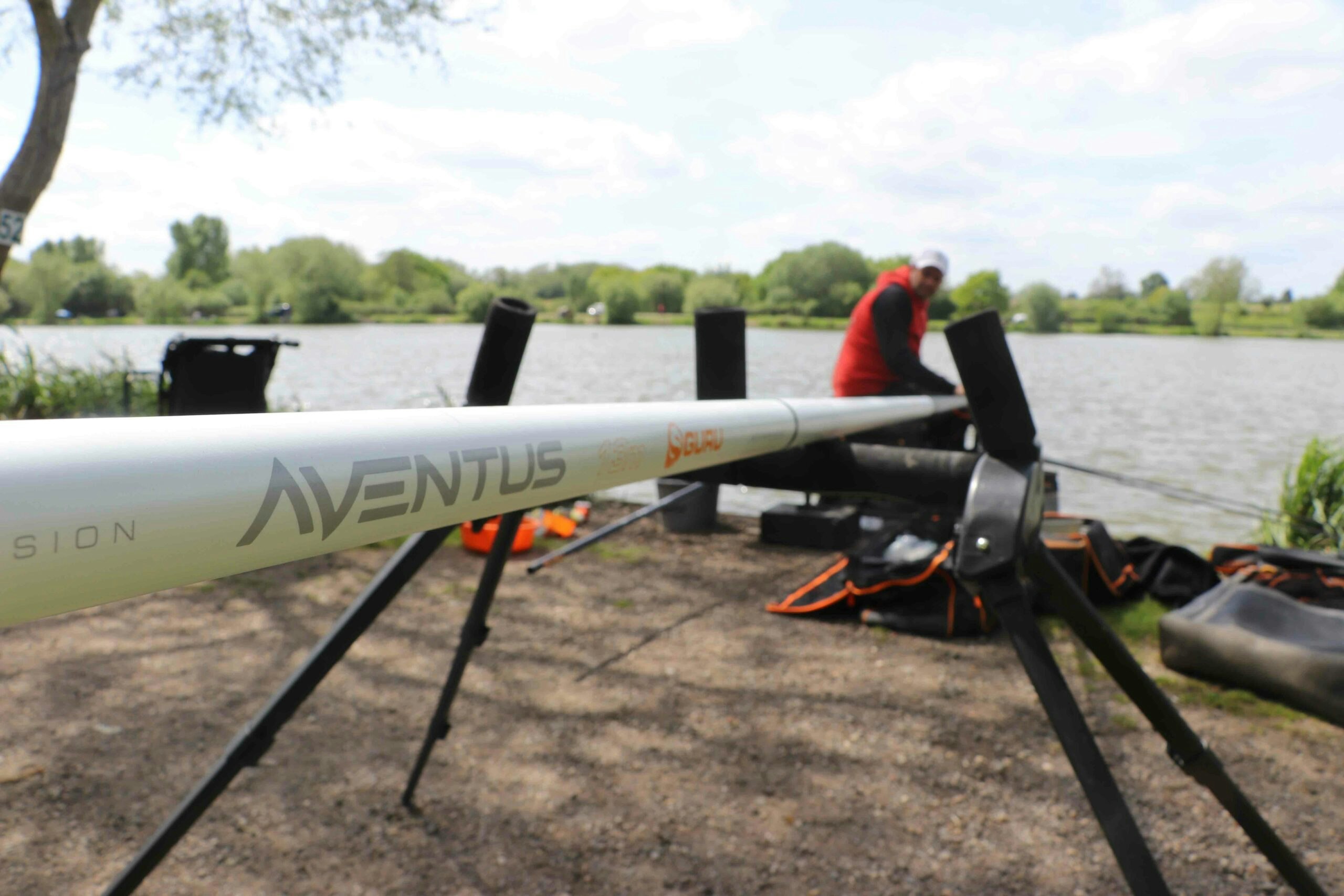
Pole rollers
In addition to the pole, a good set of pole rollers is essential for protecting your equipment and increasing your efficiency. Other necessary tackle items include rods, reels, lines, hooks, and baits. The right combination of these items will depend on the specific fishing conditions and techniques you're using.
nullnullWANT MORE INFORMATION ABOUT POLE ROLLERS? OUR GUIDE TO THE BEST POLE ROLLERS WILL GIVE YOU ALL THE INFORMATION YOU NEED
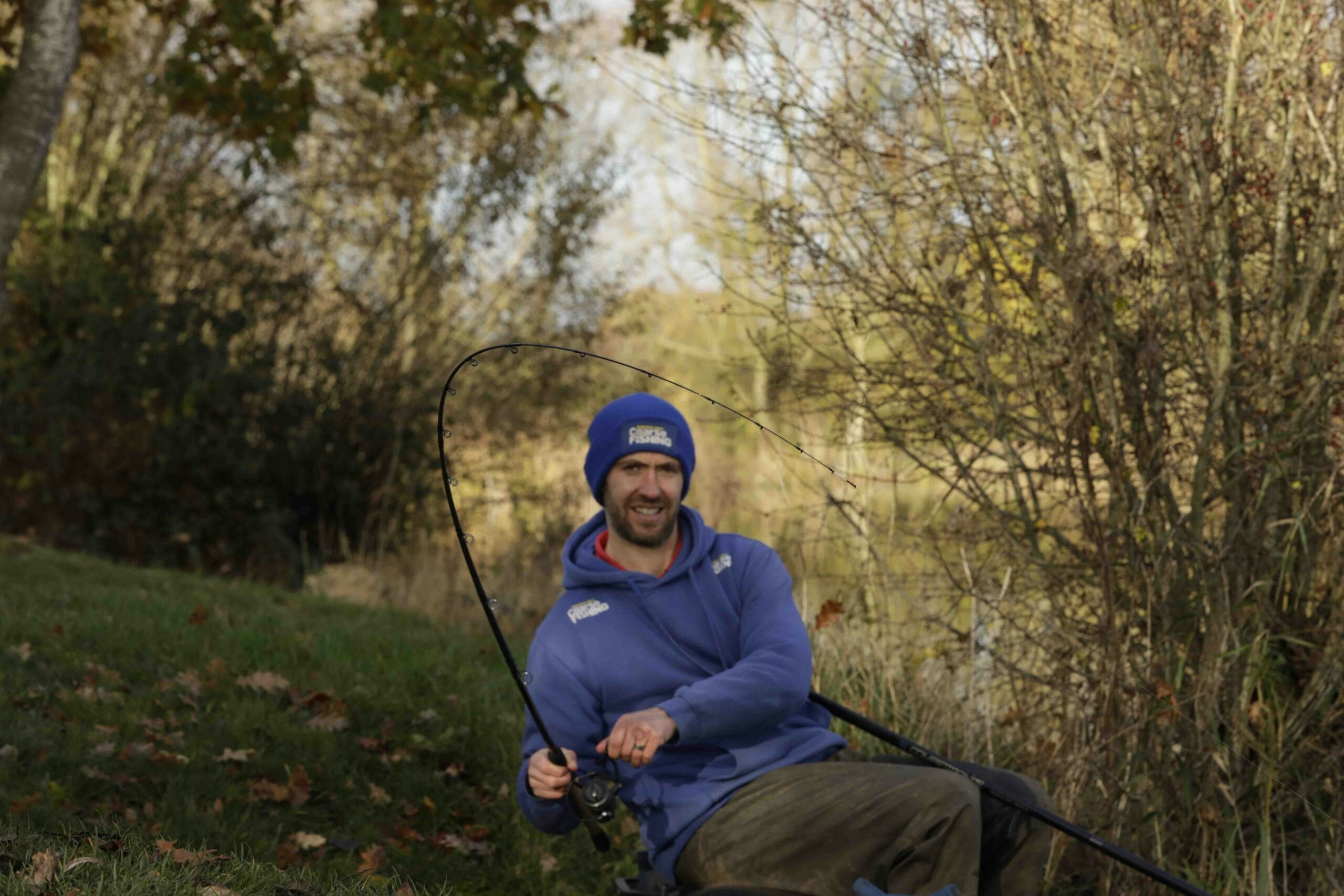
Feeder Rods
Having a couple of feeder rods of varying lengths is essential for match fishing, as the specific conditions you'll encounter can vary greatly depending on the drawn peg. While a 10ft and 11ft rod are generally sufficient for most commercial fisheries, matches on larger venues or rivers may require more specialised equipment.
For long-range fishing in deep water or strong currents, a long-range feeder rod with a powerful action is recommended. Heavy-duty feeder rods are suitable for casting large feeders and heavy weights.
nullnullnull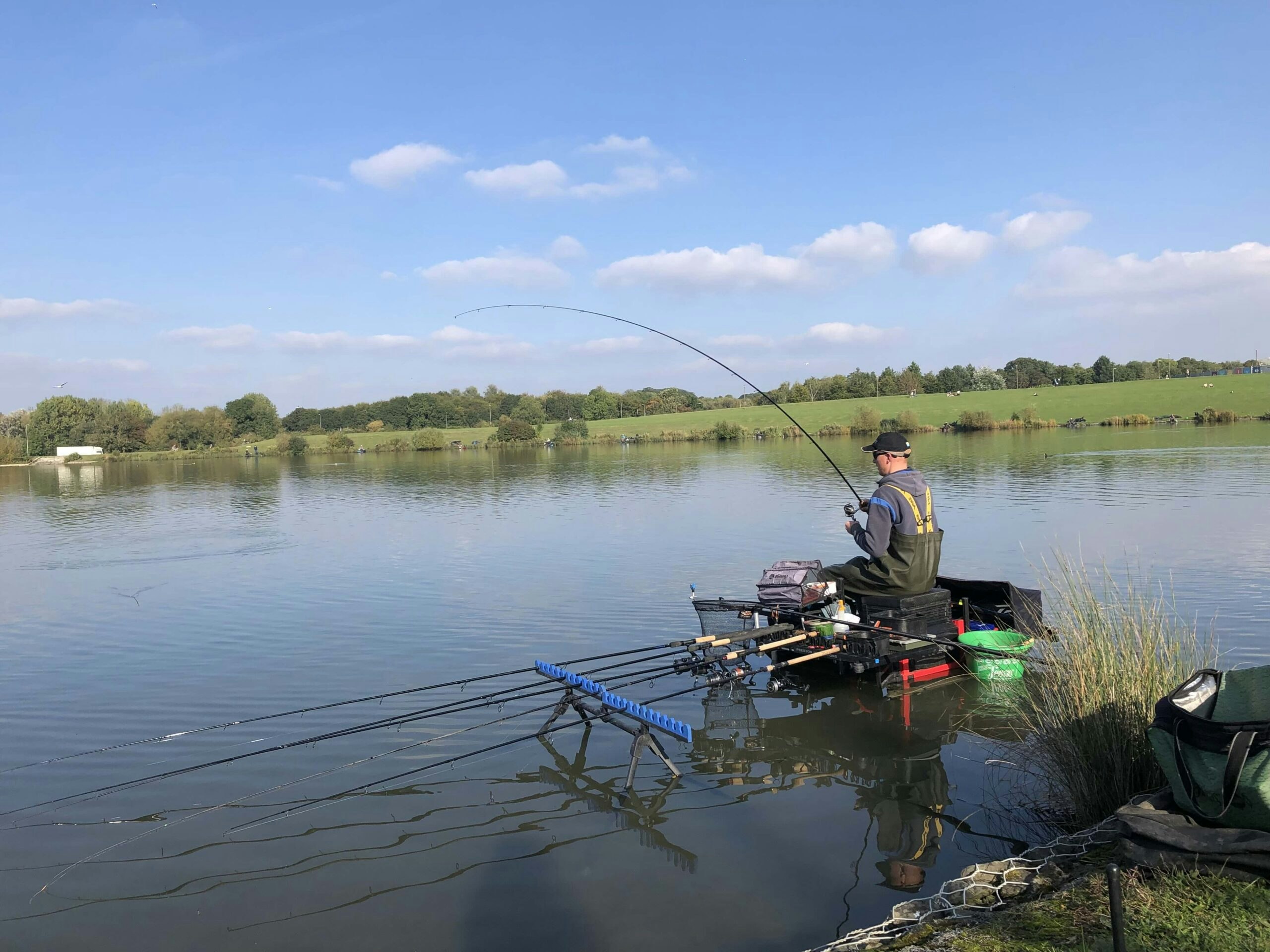
Float Rods
Float fishing can be a highly effective method for match anglers, especially when fish are out of reach of the pole, with the pellet waggler a popular tactic, a technique particularly effective for catching fish in hot conditions.
An 11ft float rod is a valuable addition to any match angler's arsenal, as it provides the necessary length and power for long-range float fishing. However, depending on the specific fishing conditions and target species, other float rod lengths may be more suitable.
By understanding the different float fishing techniques and having the appropriate equipment, you can increase your chances of success and adapt to various fishing situations.
nullnullnullJUST STARTING OUT? OUR GUIDE TO THE BEST BEGINNER FISHING RODS WILL HELP NAVIGATE THE MANY OPTIONS AVAILABLE.
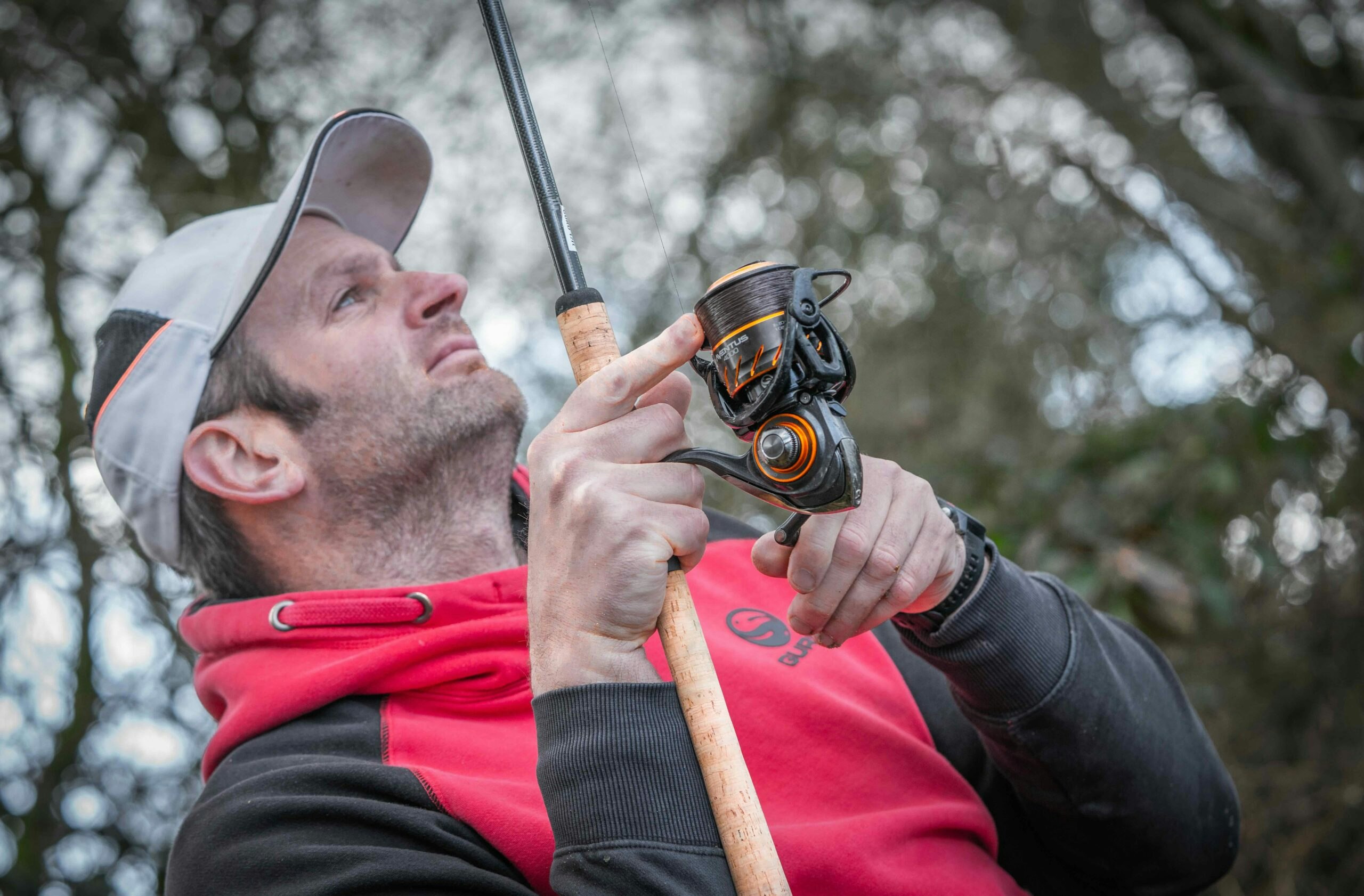
Reels
Reels need to also match the rods they are being used with. Generally 3000 & 4000 size reels ideally suited to match style feeder and float fishing, loaded correctly with reel line to suit, having a reel for each rod is important as changing one reel between rods isn’t ideal.
It's essential to load your reels with the appropriate line. Factors such as line diameter, breaking strain, and visibility should be considered.
nullnullnullLOADING THE BEST REEL LINE TO YOUR FISHING REEL IS ADVANTAGEOUS, OUR GUIDE WILL HELP YOU CHOOSE.
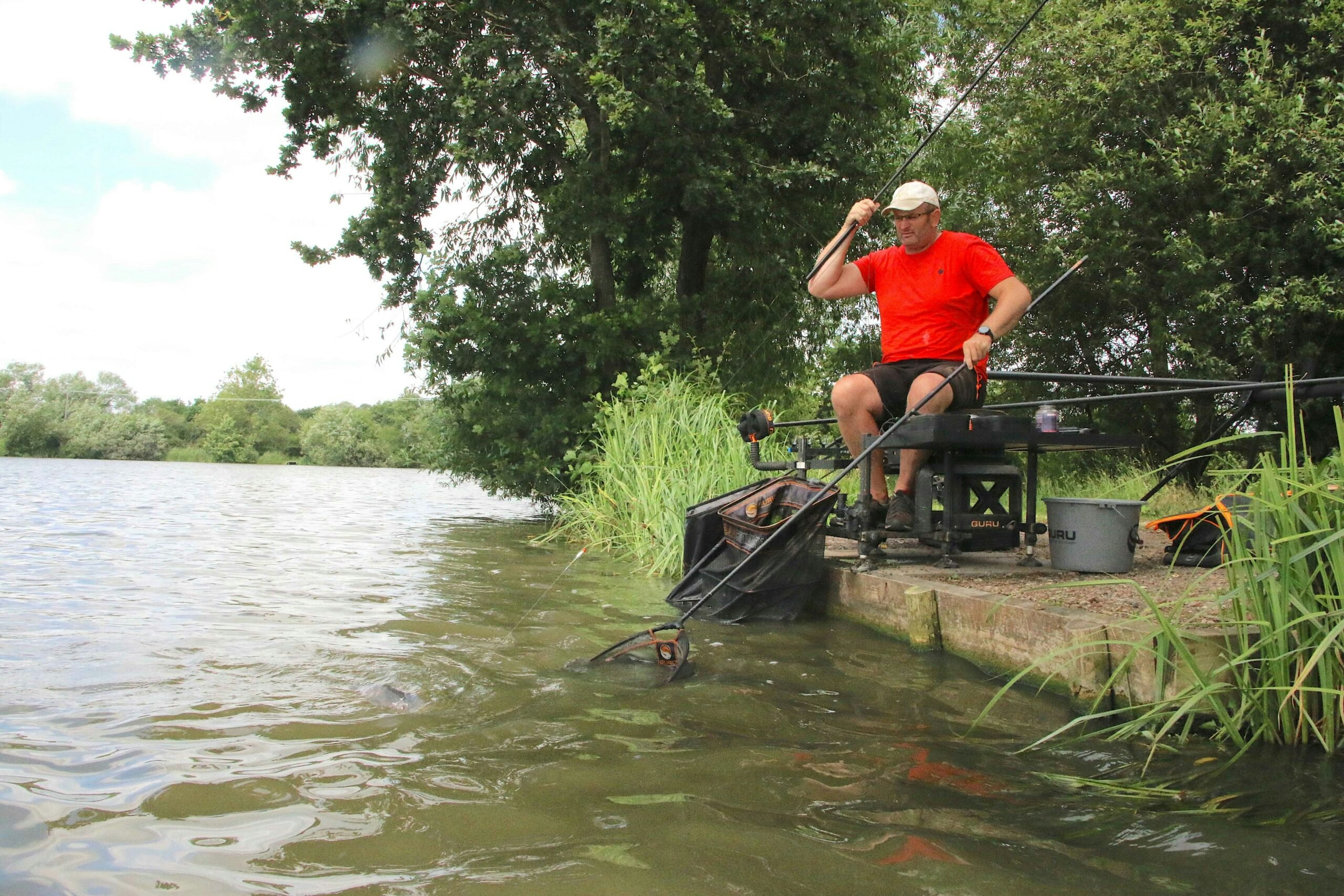
Landing Nets & Keepnets
A landing net and multiple keepnets are essential for match fishing. Different fisheries have specific keepnet limits, which restrict the maximum weight or number of fish that can be retained in a single net. To determine the appropriate number of keepnets, consider the venue's reputation for high catch rates and the specific rules in place.
When selecting a landing net, consider factors like size and mesh size. A smaller mesh is preferred when using hair rigs, as it helps prevent damage or dislodging, whereas a larger mesh is better suited for bigger specimens and can be moved through the water with greater ease.
Ensure you have enough keepnets to accommodate the potential catch, but avoid carrying unnecessary gear. Start with two keepnets and gradually increase the number as you gain experience and fish more matches. Understanding and following keepnet rules is crucial for a fair and competitive match.
nullnullnullnullTHE BRITISH WEATHER IS UNPREDICTABLE, HERE IS OUR GUIDE TO THE BEST FISHING UMBRELLAS.
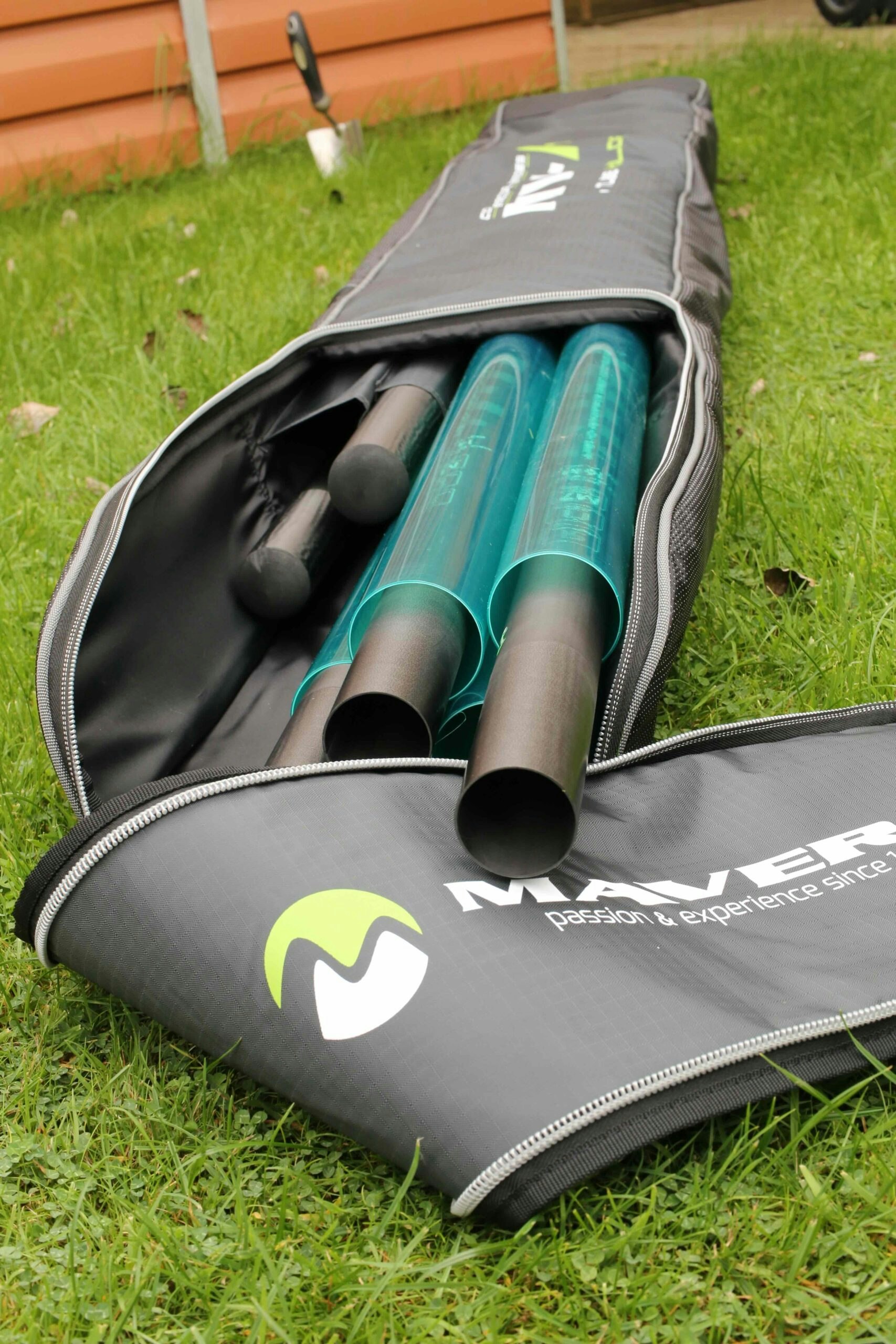
Ready Rod Bags & Luggage
Efficient storage and transportation of your fishing gear are pivotal elements to successful match fishing. The time-limited nature of matches means that being organised and prepared can make a significant difference.
Ready rod bags are invaluable for carrying assembled rods to the fishing peg, saving you time and effort. Additionally, a dedicated net bag and bait bag will help you keep your gear organised and easily accessible.
Consider using tackle boxes, tackle bags, or seatbox organisers to store your smaller items efficiently. By keeping your gear in good order, you can quickly locate what you need and avoid wasting valuable time during the match.
nullnullnullOther items of tackle for match fishing
Over time, you'll accumulate a variety of equipment that is specific to certain venues or fishing styles. While some items may not be used frequently, having them on hand can provide significant advantages. Preparation is key in match fishing, as it allows you to save time during the competition, take advantage of your time away from the bank to prepare rigs, tie hooklengths, and set up your rods.
Terminal tackle, such as floats, feeders, line, and shot are crucial for customising your rigs and maximising your time fishing. By investing in the right equipment and preparing thoroughly, you'll be well-equipped to tackle any match fishing challenge and increase your chances of success.
Remember, in the competitive world of match fishing, it's not always about having the best peg. Adaptability, efficiency, and a willingness to learn are key factors in achieving success. Developing these skills takes time and effort, so don't get discouraged if you don't win immediately.
By staying dedicated, inquisitive, and open to trying different styles and tactics, you'll gradually improve your skills and start putting together match-winning weights.
THERE ARE MANY FISHING GADGETS THAT WILL MAKE YOUR FISHING MORE PLEASURABLE AND PRODUCTIVE, OUR GUIDE TO THE BEST FISHING GADGETS WILL GIVE YOU AN INSIGHT
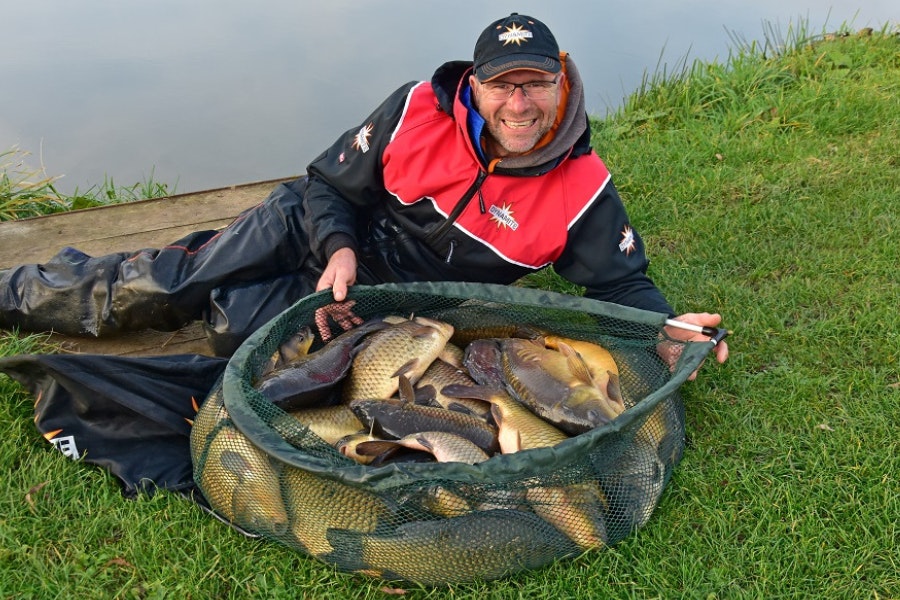
Author Jonathan Longden, is an experienced angler. With over 20 years experience in the tackle trade specialising in match and coarse fishing he has an extensive practical knowledge of the latest equipment and the specific needs of anglers. He currently occupies the role of digital content writer at Angling Times.
